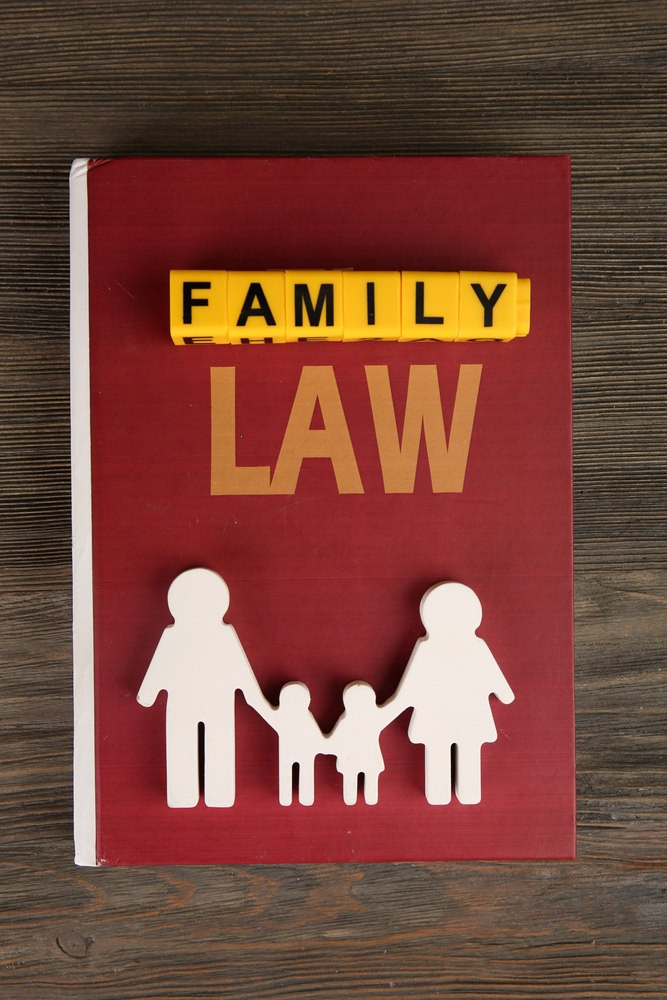Family Law Litigation
Facing a separation or divorce is an overwhelming experience, and even the thought of court can add a significant layer of stress. At Nachla Law Office, we view court as a place of last resort. Our primary goal is always to resolve your legal issue through negotiation and out-of-court settlement if possible. However, we also recognize that in certain situations, court litigation is the only option to protect your rights and the well-being of your family.
When confrontation is unavoidable, you need experienced and knowledgeable legal advocates. Our lawyers are prepared to represent you in the Family Court of the Superior Court of Justice. We will guide you through every step, ensuring the proper legal forms are served and filed, and that your case is presented effectively to a judge in court. The primary purposes of litigation in family law are to have the legal issues that you and your ex-spouse or ex-common-law spouse cannot settle in or out of court adjudicated by a judge in court in order to achieve clarity, enforce rights, and create a legally binding path forward when all other options have failed.
When is Family Law Court Litigation Necessary?
While we strongly encourage out-of-court settlements, some circumstances frustrate attempts at fair negotiation. Issues such as domestic violence or intimate partner violence, criminal charges, restraining orders, financial abuse, or a spouse hiding assets can create a genuine issue for resolving issues amicably. In these situations, our lawyers can bring a Divorce claim (a Contested Application for Divorce) to Court to seek important Orders for:
- Full and complete Financial Disclosure;
- Parenting Arrangements, including any specific application on child custody and access
- Child support obligation for the applicable child or children;
- Spousal Support;
- Prevention of Depletion or Hiding of Assets; and
- Exclusive Possession of the Matrimonial Home or Sale of the Matrimonial Home.
The court system is also critical for addressing complex jurisdictional matters, such as International child abduction cases, where court orders are required to ensure a child’s safe return.


The Contested Divorce Application Process: What to Expect
A contested divorce application means that you need the court to adjudicate on issues that you are unable to settle, which are typically complicated matters. The court litigation journey involves the same several mandatory steps regardless of how many issues need to be adjudicated and the value of property or incomes of the parties. It is important to note that family law matters are heard in specialized courts, namely the Superior Court of Justice Family Division where there are claims with respect to division of assets, or the Ontario Court of Justice Family Division if there are no claims with respect to division of assets. In the Hamilton, Ontario Region, there is a Unified Family Court that only deals with family law matters.
The court process includes several mandatory settlement meetings, such as case conferences and settlement conferences, to force the parties before the court to attempt to settle as many substantive issues as possible, and identify the core issues for trial. No Motions are allowed to be brought before a mandatory case conference except under very rare exceptional circumstances. What many people don’t realize is that there are many mandatory steps in the court process before you finally “get your day in court”. Over 90% of family court matters settle and do not go to trial.
Trial is very expensive and time-consuming, and most families can’t afford the trial process. Before a family court trial, there is a Trial Management Conference (often not just one, but several), where a Judge ensures that all disclosure needed to adjudicate the issues for trial have been provided by the parties, and once again strongly urges the parties before the court to settle all matters to avoid a trial altogether. If a global settlement is not reached at the Trial Management Conference stage, the Judge will assist in determining the length of the trial (days or weeks), the witnesses to be examined and cross-examined, and the Judge will put the matter before the court on a trial list, which only provides the approximate trial date. Our team of advice lawyers will ensure you are prepared for every step.


Financial Dispute Resolution in Court
One of the most critical aspects of any divorce is settling financial matters. When this cannot be done by negotiation and agreement, the court provides a structured forum for financial dispute resolution. This process is designed to ensure fairness and transparency under the Rule of Law.
Our role is to present a clear case regarding property division and support claims. We ensure all financial disclosure is exchanged and, if necessary, retain a joint litigation expert to provide valuations of businesses and the like. A judge has the authority to make binding orders on these financial matters. Any potential appeal in appeals court of a financial ruling must be based on an error of fact or law. Successful appeals in Family Law are rare.
The Critical Step of “Service”: Legal Notification
A fundamental principle of our justice system is that all parties must be formally notified of legal proceedings. This is called “service.” Our office manages all aspects of this crucial step, including arranging service of court documents pursuant to the Rules of service, and preparing the necessary affidavits of service. We ensure the time of service is properly documented and that an affidavit of service is filed with the court as proof.
While regular service of an originating process(meaning the Applicant’s court documents that launch a court proceeding) requires personal delivery of the court documents to the Respondent or alternatively an adult person resident in the Respondent’s place of residence, this isn’t always possible. For instance, sometimes, the Applicant doesn’t know where the Respondent resides. We can ask the court for directions for service, which may permit substituted service or, in very rare cases, Service by advertisement or dispensing with service. We manage all correspondence, including any acknowledgment of service received via email message, or by mail, and handle any required address for service changes to ensure your file’s address for service shown on the electronic court record is current.
Managing Complex Court Forms
The court system runs on precise and complex paperwork. We handle the preparation and filing of all necessary court forms, affidavits, exhibits, and documents, including the Application for Divorce (Form 13A), Answer (Form 13B), and Reply (Form 13C). We meticulously prepare your Financial Statement, (Form 13.1 or Form 13), Case Conference Briefs (Form 14C), and any required Certificate of Financial Disclosure (Form 15B) or Comparison of Net Family Property Statements (Form 15D). Unlike a simple Basis of Claim form, these family law documents require extensive detail. A single error can cause significant delays. Any formal agreement under rule or request for a judgment under rule has its own specific documentation requirements.
The Simpler Path: The Uncontested Divorce
An uncontested divorce is an Application for Divorce where there are no issues for a judge to adjudicate. You and your spouse have already agreed upon all settlement terms in a Separation Agreement, including property division, net family property equalization, the parenting plan, spousal support, and child support pursuant to the Federal child support guidelines. We prepare and file your Application for Divorce (Simple), arrange to have it served personally on your ex-spouse, and, after 30 days, assuming your ex-spouse does not make any claims, take the next steps to obtain your Divorce Order and Divorce Certificate. The entire process typically takes 4-6 months, and no attendance in person at court is typically required.
Why Choose Nachla Law?
When litigation is your only option, you need a firm that combines compassionate Legal Advice with strong advocacy. Unlike a generic Lawyer Directory or Referral Service, our Customer Service team provides personalized support. We are committed to the principle of Access to Justice and can provide information on resources like Legal Aid Ontario and Family Law Service Centres. You can reach our office by email using the correct email address, office@nachlaw.com or by phone at 905-290-1965, to schedule a Free 15 minute phone call or a consultation (in-person or virtual). While we are not a government Service Finder, we are dedicated to helping you navigate the system. Should a decision require an appeal, we can prepare the necessary appeal document. We will guide you through every Motion under rule and ensure you understand the process, your rights and obligations.

Need Family Law Litigation Services?
Facing family court litigation? Don’t go through it alone. Contact Nachla Law now to schedule a Free 15 minute phone call or consultation (in-person or virtual) and get the expert legal representation you need to protect your rights, your family and your future.
Let’s Connect
Free 15-Minute Phone Call
